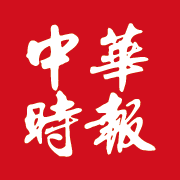By APD writer Kim Ratha
Phnom Penh, Dec.3(APD)--Cambodia Rice Federation (CRF), a representative for rice industry, on Friday expressed concerned over the potential safeguard measures by the EU relating to rice originating from least-developing countries including Cambodia.According to the CRF’s statement, the federation already conducted its trip to the EU by meeting some representative over the risk to the industry after a hearing in Brussels at European Commission Directorate General for trade on 26 November 2018, CRF asked EU member states not to support the current safeguard action.
CRF said that some 3 million farmers will be the vulnerable people who makes living from their farming in rice sector if there is any implementation of the safeguards.
The CRF also said that the safeguard measure placed on Cambodian rice will cause the damage to the revenue of farmers, especially smallholder farmers, with more than 40 percent with less than one hectare of farming land or more than 90 percent with less than three hectares of farm land per household, leading to outflow of labor from this sector and affect the food security in the future. At the same time, it can push them back below poverty line and affecting their children future life which rely on this revenue for schooling and nutrition.
“This Tuesday (December 4), theEU member states will vote on the European Commission’s plans to impose tariffs on Cambodian rice exports, andEU Commission’s Directorate-General for Trade will take the final decision on that day,” said CRF in the statement.
The vote by EU member states on the European Commission’s plans to impose tariffs on Cambodian rice exports owning to the filed request by Italy, along with six other EU countries, to the European Union to activate a ‘safeguard clause’ to protect local rice growers against trade imbalances.
In March this year, the European Commission launched a safeguard investigation to determine whether the volume with or without prices of imports of semi-milled and milled Indica rice, originating in Cambodia and Myanmar, was “causing serious difficulties to European Union producers of like or competing products”.
Then on November 5, 2018, EU commission’s Directorate-General for Trade,showed findings of their investigation confirmed a significant surge of rice imports from Cambodia and Myanmar has caused economic damage to the rice sector in Europe, andallowing EU member states to impose barriers between 175 euros/ton for one year, 150 euros/ton and 125 euro/tons respectively, for the second and third year, which starting from January 1, 2019.
CRF’s statement however said that it believes the safeguards would be a major setback to enormous efforts to date to build up the rice industry in Cambodia and to assist Cambodian farmers with finding a better livelihood. CRF believes millions of Cambodian farmers will be negatively impacted by a decision by the EU to put in place safeguards and will be devastating to the country and to Cambodian farmers.
It says the root cause of the issue raised by Italy and Spain in due to internal issues and not impacted by the exports to the EU of Cambodian rice.
“The EU has combined the Cambodian import figures with Myanmar’s figures in the current case. This is not technically correct since both countries export different types of rice while Cambodia focus on fragrant rice and premium Jasmine rice and with a big gap of price with the rice price from Myanmar. The combination leads to analysis result on the impact biased,” according to the CRF’s statement.
CRF stressed in the statement to EU that the rice production in Italy and Spain is largely Japonica (over 85 percent) not Indica rice. It added that how the potential safeguard action, which is aimed against Indica rice, will effectively improve the rice industry of these two member states. It also believed that Cambodian Indica rice imports have not caused any serious damage to EU farmers.
“In fact, the majority of Cambodian rice (55percent) exported into the EU is fragrant rice, which we understand is not currently grown in Europe. Fragrant rice is from photo sensitive rice paddy, which can only bear fruit at a certain time of year and is difficult to grow in the Climate of the EU,” the statement says.
“Overall, there is insufficient data reviewed by the EU commission to make any proper conclusion to warrant safeguard measures and evidence provided by the CRF has been utterly ignored,” the statement says.
It said that given the potential damage caused to Cambodian farmers and to the fledging rice sector in the country, CRF believes placing safeguards on Cambodian rice is harmful, unwarranted and against the spirit of the many EU efforts to date to encourage Cambodia’s rice sector.
(ASIA PACIFIC DAILY)

